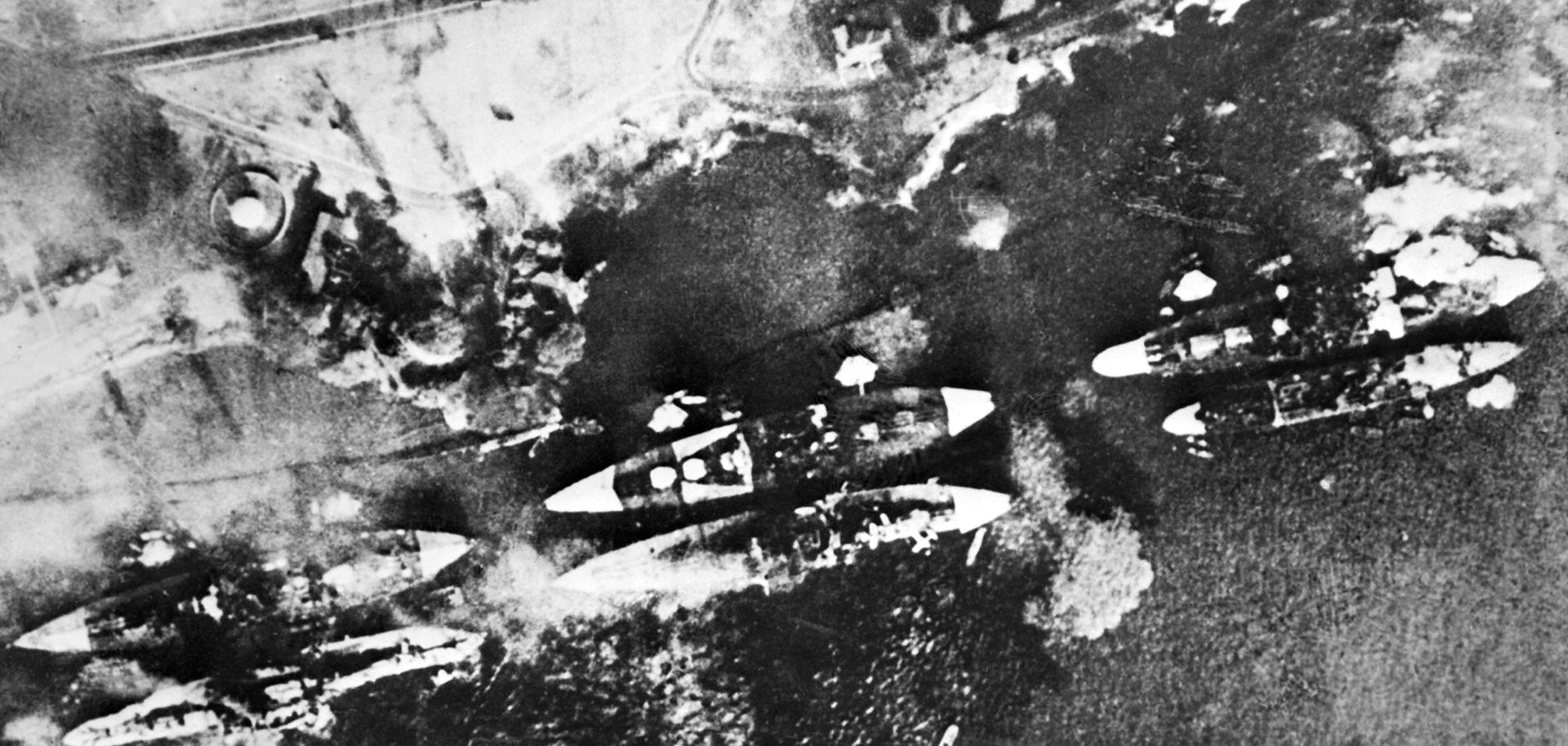ASSESSMENTS
Pearl Harbor: An Intelligence Failure That Lives in Infamy
Dec 7, 2016 | 09:00 GMT

Japan's attack on Pearl Harbor has been the subject of intense scrutiny and countless rehashings. But just as important as the events that unfolded Dec. 7, 1941, are the circumstances leading up to the assault.
(HO/AFP/Getty Images)
Editor's Note
In light of the anniversary of Japan's surprise attack on the United States at Pearl Harbor in 1941, we are republishing this December 2016 piece examining how the events of that day serve as an example of the challenges of intelligence.
Subscribe Now
SubscribeAlready have an account?
